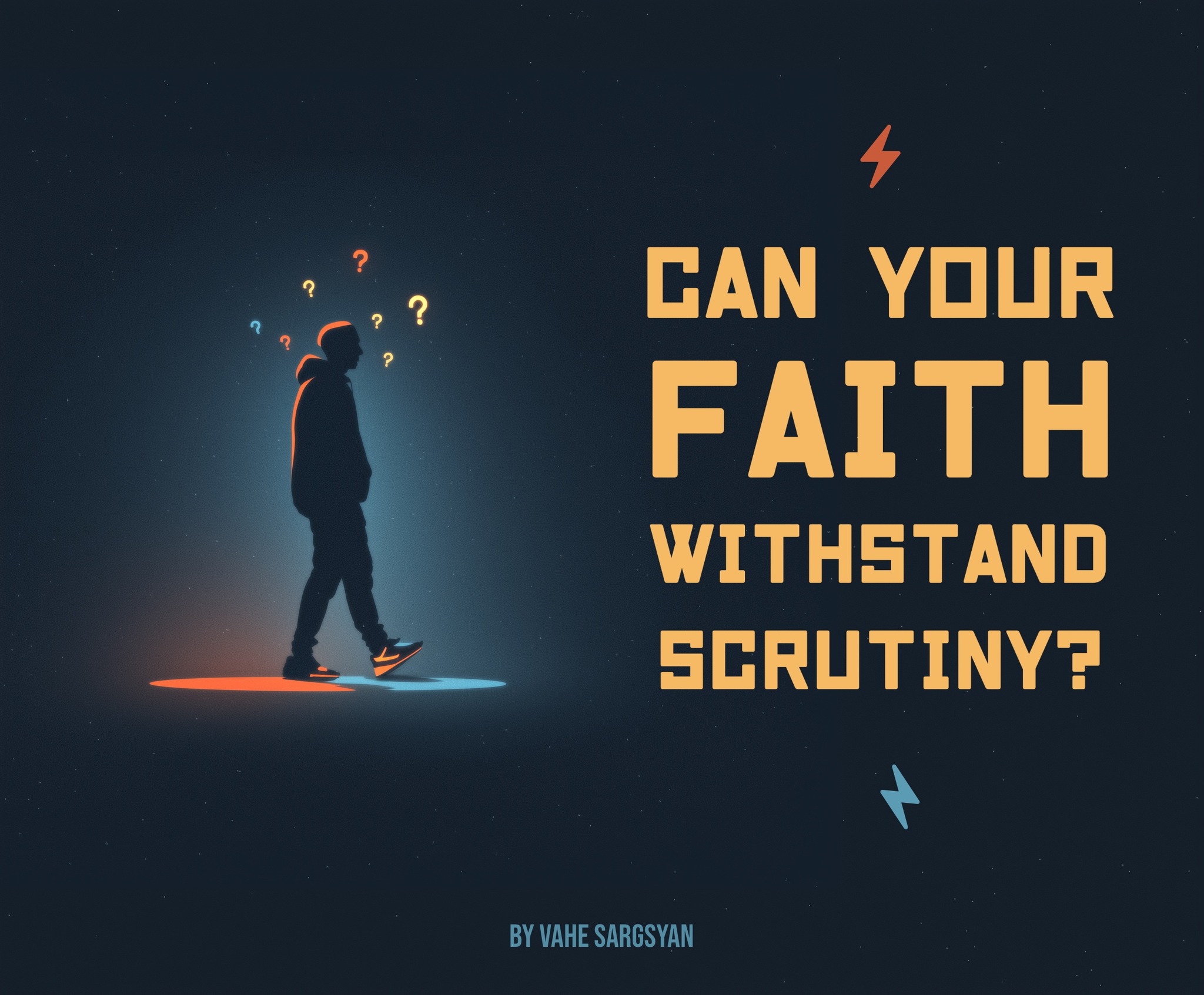Devotional
Posted: 09/22/2025

“Examine yourselves to see whether you are in the faith; test yourselves.” (2 Corinthians 13:5)
Many Christians are unprepared for the most important questions of life. If someone were to ask you, “Why do you believe what you believe?” could you answer? If a friend pressed you—“How do you know God exists?”—would your faith stand, or would it stumble into silence?
Too often, our faith is inherited rather than examined. We believe because we were born into it. Or we cling to it because it makes us feel warm and secure. But truth is not measured by comfort, and faith cannot survive on sentiment alone. A faith that has never been tested is a faith that may not endure when the testing comes.
⸻
Why Examination Matters
The Apostle Paul calls us not to blind tradition, but to courageous self-examination: “Test yourselves.” This is not an invitation to doubt for doubt’s sake, but to strengthen what is weak. To discover where our convictions are shallow. To build a faith that is not only heartfelt but also intellectually resilient.
And this testing itself is part of God’s design. As James writes: “Consider it pure joy, my brothers and sisters, whenever you face trials of many kinds, because you know that the testing of your faith produces perseverance.” (James 1:2–3). Faith under pressure is not destroyed—it is refined, deepened, made durable.
⸻
What Happens When We Are Challenged
Imagine you are in a conversation about God. A friend says, “Science has disproved religion.” Another asks, “If God is good, why is there so much evil?” If you hesitate, does that mean your faith is false? Not at all. It means you must prepare.
There are ancient and powerful arguments for the truth of Christianity—the Cosmological argument that the universe must have a cause, the Moral argument that objective right and wrong demand a Lawgiver, the Argument from Design that points to the precision of creation. These do not replace faith, but they support it. They remind us that Christianity is not a blind leap but a reasonable trust in truth.
As the apologist Greg Koukl reminds us in Tactics: you don’t have to know everything. You just need to know something. Asking questions, probing gently, and offering even one clear answer can be enough to stir another person’s heart. And as Geisler and Turek argue in I Don’t Have Enough Faith to Be an Atheist, unbelief itself requires an enormous leap—often far greater than belief in God.
⸻
The Truth Is Not Afraid of Questions
We should never fear hard questions. Truth welcomes examination because it has nothing to hide. Lies need the dark; truth thrives in the light. Christianity has faced centuries of scrutiny from skeptics, emperors, philosophers, and modern critics, and it still stands. If what we believe is true, then questions will not dismantle it—they will only sharpen it and drive us closer to Christ, who is Himself the Truth.
⸻
The Path Forward
So, what should you do? Do not settle for a secondhand faith. Examine yourself. Examine what you believe, and why you believe it. Challenge yourself with questions, and when you find weakness, strengthen it. Read. Study. Ask. Wrestle. Pray.
And always remember: if you don’t know the answer in the moment, it doesn’t mean you are wrong. It means you are still in training. Christianity has withstood centuries of scrutiny. The truth is not afraid of questions.
⸻
A Final Word
Dear brothers and sisters, a faith that is never tested is a faith that can easily crumble. But a faith that is examined, sharpened, and practiced—heart and mind together—is unshakable.
Take St. Paul’s words seriously: “Examine yourselves to see whether you are in the faith.” Do not be content with shallow conviction. Build a faith that can withstand examination, because the world will ask, and your own soul will demand it.
______________________________________
- Vahe Sargsyan holds a graduate degree in Theology from YSU. For over 16 years, he has been engaged in Religious Education and now serves in the Media Department of the Western Diocese, where he produces religious content.
His writings focus on faith, heritage, and everyday Christian life of the Armenian Orthodox Christian community.